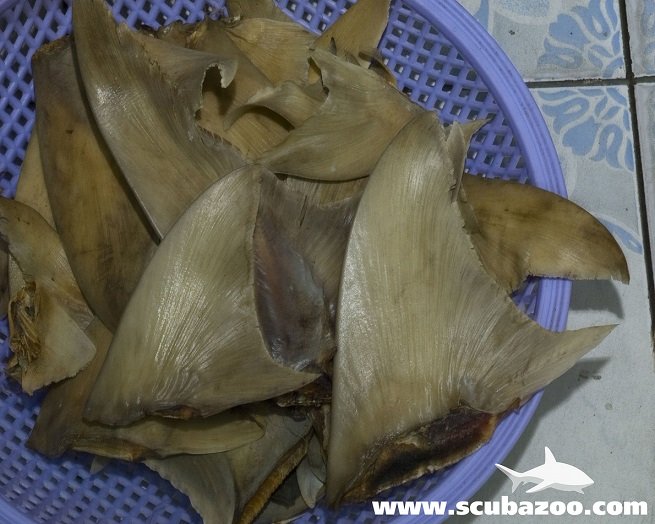Today is the international day for the fight against Illegal, Unreported and Unregulated Fishing is observed each year across the world on June 5.
IUU (Illegal, Unreported, and Unregulated) fishing is a serious problem that poses a threat to the sustainability of marine ecosystems and the livelihoods of millions of people who depend on fisheries worldwide. The UN FAO estimates that worldwide, IUU fishing accounts for around 20 percent of global catch; in certain countries, that number is closer to 50 percent. The modern fisheries sector is globalized, industrialized, and integrated into the worldwide financial market. IUU fishing threatens local artisanal and subsistence fishers and economies, is associated with criminal behavior and undermines food security.
IUU Fishing is Especially Bad for Sharks
Illegal, unreported, and unregulated (IUU) fishing has had a significant impact on shark populations worldwide. Sharks are particularly vulnerable to IUU fishing due to their life history characteristics, slow growth rates, late maturation, and low reproductive rates. IUU fishing for sharks exacerbates these vulnerabilities and threatens their survival.
The extent of IUU fishing for sharks is difficult to quantify precisely because it occurs outside the bounds of legal frameworks and often goes unreported. However, it is widely acknowledged that IUU fishing has had devastating effects on shark populations. Driven largely by the shark fin trade, many shark species are overexploited, and their numbers have declined dramatically in recent decades.
Sharks are targeted for their fins, which are highly valuable in international markets, particularly for shark fin soup. Shark finning, the practice of removing the fins and discarding the rest of the shark at sea, is widely condemned but often associated with IUU fishing. This wasteful and unsustainable practice contributes to the decline of shark populations, with subsequent impacts on the marine environment.
Shark fins are highly valued in the Asian market. Fins from select species can bring a thousand US dollars a kilogram, and a bowl of shark fin soup may cost $100 US. The fins, once removed from the shark can be easily hidden among other catch, mislabeled as dried seafood and transported without accountability. This leads to protected sharks being killed, underreporting of catch in shark populations and a continued decline in populations impacted by habitat and prey loss and by regulated fisheries.
IUU fishing not only affects the targeted shark species but also has broader ecological consequences. Sharks play a crucial role in marine ecosystems as top predators, regulating the balance of species below them in the food chain. Their decline can lead to cascading effects on other marine species and ecosystems.
Efforts to combat IUU fishing and protect sharks have been ongoing at both national and international levels. Many countries have implemented stricter regulations and surveillance measures to detect and deter illegal fishing activities. Regional fisheries management organizations and international agreements, such as the Convention on International Trade in Endangered Species of Wild Fauna and Flora (CITES), have also been instrumental in addressing the issue.
However, IUU fishing remains a significant challenge, and more coordinated efforts are needed to combat this illegal activity effectively. Conservation organizations, governments, and the international community continue to work together to raise awareness, strengthen enforcement, and promote sustainable fishing practices to safeguard shark populations and marine ecosystems.

Reasons why IUU fishing is Bad:
- Unsustainable fishing practices: IUU fishing often involves overfishing, which depletes fish populations beyond their capacity to recover. It disregards fishing regulations and quotas set by governments and regional fisheries management organizations, leading to the collapse of fish stocks and ecological imbalance.
- Environmental impact: IUU fishing can cause severe damage to marine habitats and ecosystems. It often involves destructive fishing methods, such as the use of dynamite, chemicals, or large-scale trawling nets that damage coral reefs, seafloor habitats, and non-target species.
- Economic consequences: IUU fishing undermines legitimate fishing operations and can lead to significant economic losses for legal fishing industries. It distorts market prices, as illegally caught fish can enter the market at lower prices, creating unfair competition for law-abiding fishermen. This can result in lost revenue, unemployment, and economic instability in coastal communities.
- Food security and nutrition: IUU fishing contributes to food insecurity, particularly in developing countries that heavily rely on fish as a primary source of protein and essential nutrients. The depletion of fish stocks due to illegal fishing practices reduces the availability of fish for local consumption and can exacerbate hunger and malnutrition.
- Maritime security and organized crime: IUU fishing is often linked to other illicit activities, such as human trafficking, drug smuggling, and piracy. It creates a breeding ground for organized crime networks that exploit vulnerable communities and undermine stability and security in coastal regions.
Its time humans begin to scrutinize the true value and healthiness of consuming fish.
“Where did my fish come from, how was it caught, what died or who suffered along the way?”
The server might not have these answers, but there is a chance of one in five that it was IUU, and the answers might not what be what we want to hear when we order a Catch of the Day.